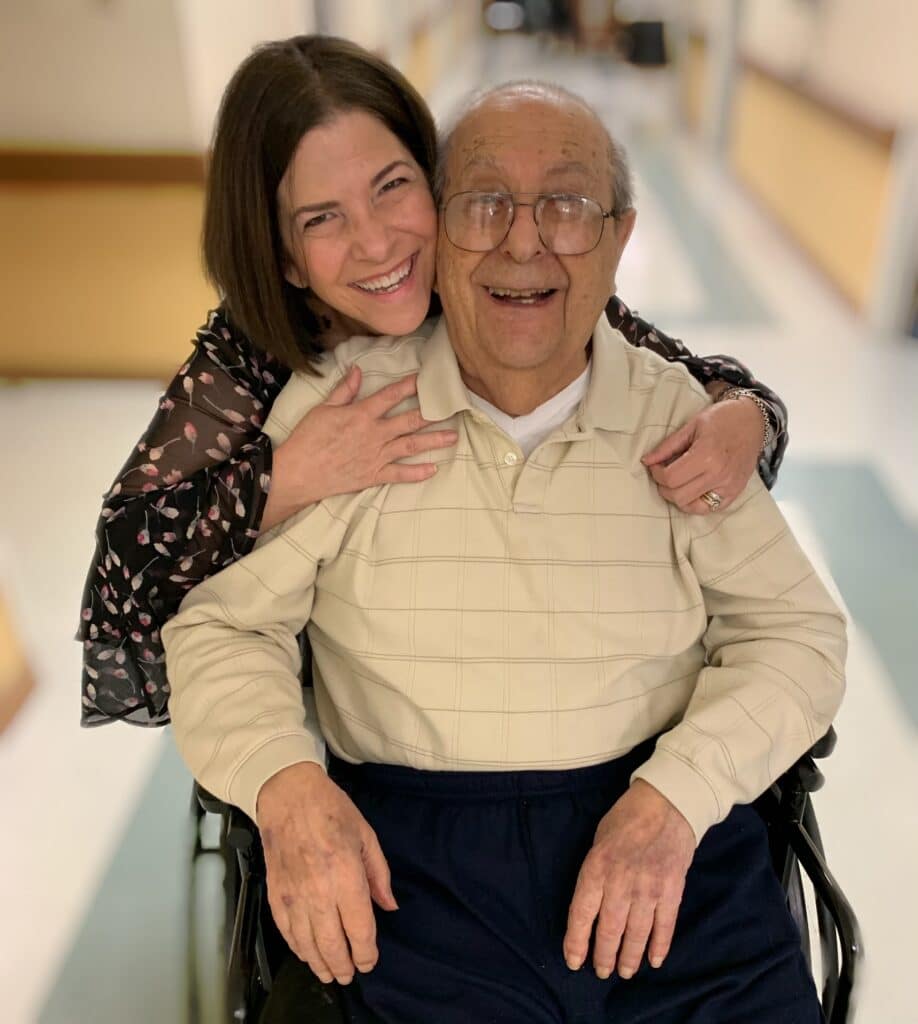By Karla Lindeen, Resident Services Director
Karla has worked in the health care industry for over twenty years locally in the Tampa Bay area. She received her undergraduate degree from Florida State University, and earned an MBA from University of Phoenix, a Graduate Certificate in Geriatric Care Management from the University of Florida, and is Care Manager Certified. In addition, Karla is a Life Story Training graduate, and has earned an essentiALZ® Plus Dementia Advanced Care Certification. She is an active member of the Aging Life Care Association, and serves on the Florida Chapter Board of Directors. She is also a member of Better Living for Seniors, and American Society on Aging. Karla also proudly serves in an appointed position on the Dunedin Committee on Aging.
As we gear up for the 2019 Walk to End Alzheimer’s, we are hosting fundraising events to benefit the Alzheimer’s Association and hoping to share helpful information on memory care. So, with my firsthand experience as an Aging Life Care manager working with both clients and the facilities they reside in I thought this would be the perfect time to utilize this blog space as a resource center for memory care.
We understand mild forgetfulness can be a normal part of aging. If you have trouble remembering someone’s name but it comes to you later, that’s not a necessarily an early sign of Alzheimer’s. But if memory problems are seriously affecting your daily life, they could be early signs of Alzheimer’s disease. While the number of symptoms you have and how strong they are vary, it’s important to identify the early signs.
10 Early Signs of Alzheimer’s
Memory Loss
This is the most common symptom. Do you easily forget information you just learned? Do you lose track of important dates, names, and events? Do you forget big things even happened? Do you ask for the same information over and over? Do you rely heavily on memory aids like Post-it notes?
Behavior and Mood Changes
As things get more confusing because of an inability to understand, your mood can be impacted greatly. Do you get upset more easily? Do you feel depressed, scared, or anxious? Are you suspicious of people?
Challenges of Daily Tasks
Even routine familiar things can become hard. Is it tough to follow a recipe, even one you’ve used many times? Do you have trouble driving to a location you go to often? Can you complete an ordinary task at work? Do you forget the rules of your favorite game?
Problem Solving
Concentrating on detailed tasks can be tricky. Do you find it difficult to focus on something if it involves numbers? For example, can you keep track of your bills and balance your checkbook?
Times and Places Become Confusing
We all get turned around sometimes, especially in new surroundings, but do you get lost easily? Do you forget where you are? Feel disoriented? Do you remember how you got there? Can you fully grasp something that’s not happening right now?
Words and Conversations are Frustrating
Conversations can be a struggle. Can you find the right word you’re looking for? Or do you call things by the wrong name? Do you avoid joining in? Are you able to follow along? Do you suddenly stop in the middle of a discussion because you don’t know what to say? Do you keep repeating yourself?
Losing Things
Everyone misplaces things from time to time, but can you retrace your steps to find them again? Do you put things in unusual places, like your keys in the refrigerator? Do you accuse people of taking things?
Lapse In Judgement
Do you make mistakes with money, like giving it away when you normally wouldn’t? Are you showering as often as you should? Do you take less care of yourself? Do you dress for the wrong weather?
Social Withdrawal
Are you less involved with your favorite hobbies? Do you lack motivation? Do you find yourself watching television or sleeping more than usual? Are you staying in your home, when you used to socialize with friends routinely?
Vision Changes
Is it harder to read the words on the page? Do you have trouble judging distance? Can you tell colors apart? Do you think the floor is wet, when it isn’t? This is important because it can affect your driving and can lead to falls and balance issues while walking.
Please see a Doctor if you notice any of these early signs of Alzheimer’s and get an evaluation of your physical and mental health. Your Doctor will look over your medical history and do a mental status test, which looks at your memory, ability to solve simple problems, and thinking skills. The doctor may also order blood or brain imaging tests.
The sooner you know, the better. Starting treatment early may help relieve symptoms and keep you independent longer. It also helps you plan better, so you can work out living arrangements, make financial and legal decisions, and build up your support network. We all want to have a say in our future planning and knowledge is power.
For more information about our Michael Bilirakis Memory Care at St. Mark Village, please visit www.StMarkVillage.org/MemoryCare.


